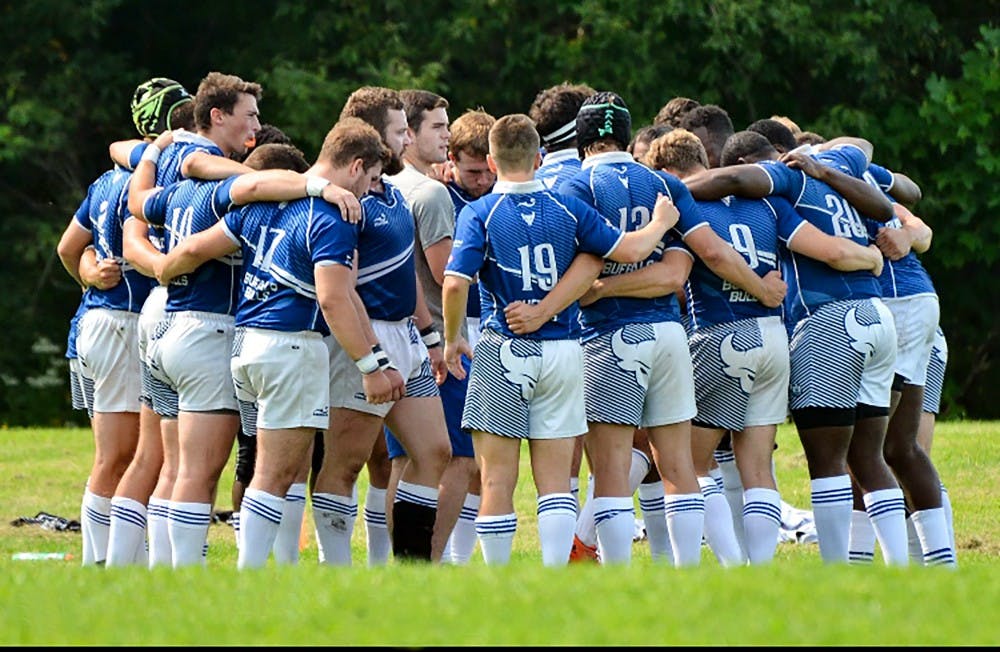No helmet, no shoulder pads and immense force of impact: rugby team athletes are prone to injuries. Maintaining the body is crucial when athletes are pushed to their limits for 10 weeks.
UB Rugby teamed up two years ago with strength and conditioning specialist Dr. Dave Hostler, the UB chair of exercise and nutrition science, and his wife Deanna Colburn-Hostler, a physical therapist and member of the rehabilitation sciences department, who help oversee the players’ wellbeing. They provide insight to the team on injury, self-maintenance, food choices, the importance of body health and the benefit of sleep in the recovery process.
Dr. Hostler gives the athletes a fitness program during the offseason to lift to gain mass four days a week and stresses the importance of healthy eating. Exercise science majors can also work with the Hostlers to complete independent studies.
“Fitness is critically important for rugby,” Hostler said. “It’s a collision sport without pads or helmets. If you are not fit, you will not be able to recover quickly and stay healthy for the season.”
Players lift and practice multiple times a week altogether. They also have a run-through Friday, a game on Saturday and “a film session and yoga” on Monday, according to senior club president Jake Oppenheim.
The Hostlers regularly check on the players during the season to see how injuries are happening. The Hostlers noticed a trend in shoulder injuries and started a program to prevent the reoccurring issues. Shoulder injuries are almost nonexistent among the Bulls in recent seasons.
“My philosophy is to train the weaknesses first,” Hostler said. “Once you understand your players' capabilities, you know where they need to improve to optimize performance and recovery.”
Athletes reported feeling physically better as a result of the Hostlers’ teachings.
“[They] reflect some of their knowledge on us and try to get our recovery going as fast as possible so we can get back on the field,” said Zach Walleshauser, a senior mechanical engineering. “It definitely helped more so this year, especially because I’ve been injured in the past and I kind of would just brush it off and now we have all that assistance with us. It’s nice to have them.”
The Hostlers’ program also combats offseason deconditioning.
Oppenheim was unable to play his sophomore and junior year due to shoulder injuries that he thinks could have been avoided with help from the Hostlers.
Oppenheim said he didn’t take enough care of his shoulders in the offseason.
These injuries impact the players physically, emotionally and academically. A healthy body translates to a quicker transition to the classroom. The rugby team encourages excellence on and off the field.
“One thing we stress on the team a lot is school comes first,” said sophomore vice president Owen Lawther. “The best players make time for rugby… . It is a time commitment which makes school harder, but we also provide a lot of resources.”
The Hostlers aid Lawther academically. The specialists help him learn beyond the classroom and he said they help him see what he could be doing as an exercise science major post-graduation.
“It is definitely taxing on both your body and your mind,” Lawther said. “But if you want it bad enough, you will make it work.”
Jeremy Torres is the assistant sports editor and can be reached at jeremy.torres@ubspectrum.com





